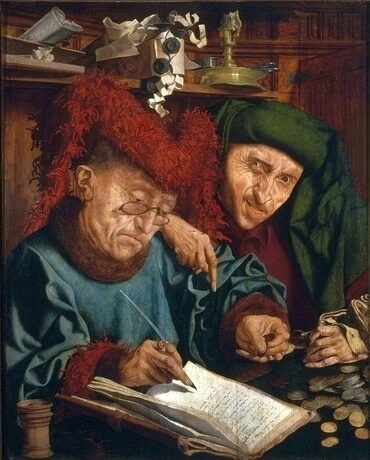Luke 16:7
La Explicación
Por Brian David

Again, a debtor represents spiritual knowledge that has been learned but not yet taken to heart. In this case, the "debt" has to do with the desire for good ("wheat") in a tremendous quantity (both "100" and a "cor" or "homer" – a measurement of enough food for 100 people – represent a state of fullness or completeness).
When we apply external religious ideas to this borrowed state, the borrowed knowledge is brought to a lower spiritual state (the debtor "sits down"), one that apparently represents the beginning of a new state ("80" can have various meanings, but this seems to fit). This lesser new state, however, is "written," or inscribed on the heart and made permanent.






